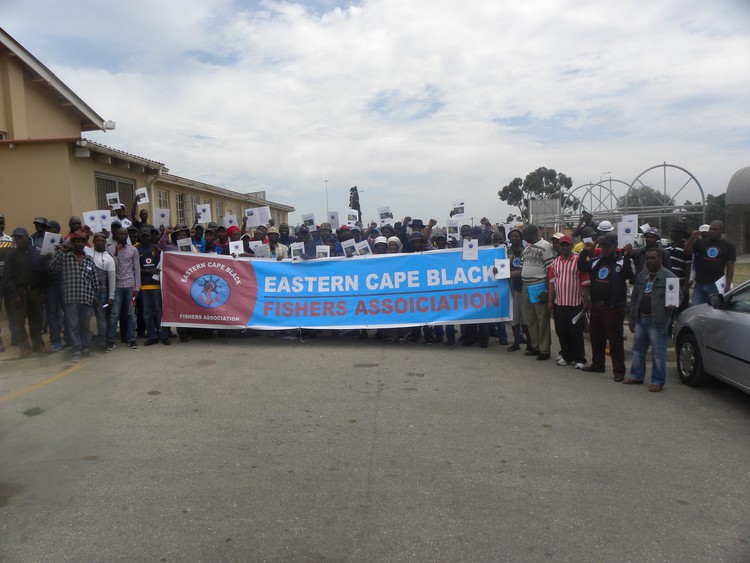New black fishing association launched
Chokka fishermen complain about working conditions
Black fishermen in the Eastern Cape have formed a cooperative aimed at negotiating better working conditions.
The Eastern Cape Black Fishers’ Association was formed last week in Zwide, Port Elizabeth. It brings together fishermen, divers, factory workers and sellers of fried fish in townships.
At the launch, chokka fishermen complained about poor working conditions and the lack of transformation in the industry. Factory workers said they worked with poor protective clothing and often under cold conditions in the processing plants.
The fishermen said they worked on the chokka boats and were paid R10 per kilogram of chokka. They said they wanted to be considered as employees of the fishing companies and not as independent contractors who had to provide their own equipment and protective clothing and did not have pension benefits.
“A lot of exploitation is happening in the industry. The workers are regarded as independent contractors, hence our struggle to change that so that they become recognised as employees in order to have benefits.” said Xola Ngcangca, leader of the organisation.
He said the organisation had 135 members and intended to expand to other coastal towns in the Eastern Cape.
Ngcangca said the association would lobby for income protection for fishermen during the off season, for government monitoring of working conditions, and for an empowerment fund for fishermen.
Zihle Gwechana, 64, has been working as a fisherman for 36 years and will soon retire. He said he was weary after years of working in the ocean.
He said he was paid R10 a kilo and spent three weeks at a time at sea. “It is even difficult to get paid R2,000 at the end of 21 days fishing,” said Gwechana.
“I have nothing to show for those years I have worked in the ocean in chokka boats.”
Hilifilwa Shikoneni is a Namibian national who has been in South Africa for nearly 20 years. He has been working as a chokka fisherman since 2003.
“We work long hours at sea. We don’t have a basic salary. There are no benefits and we pay for our food and for the equipment we use for fishing. I am glad that we now have an organisation that will represent our grievances,“ said Shikoneni.
Support independent journalism
Donate using Payfast

Don't miss out on the latest news
We respect your privacy, and promise we won't spam you.
© 2018 GroundUp.
This article is licensed under a Creative Commons Attribution-NoDerivatives 4.0 International License.
You may republish this article, so long as you credit the authors and GroundUp, and do not change the text. Please include a link back to the original article.

